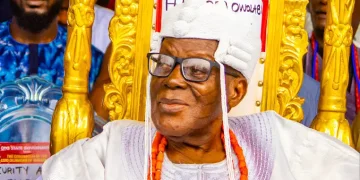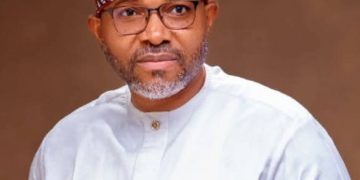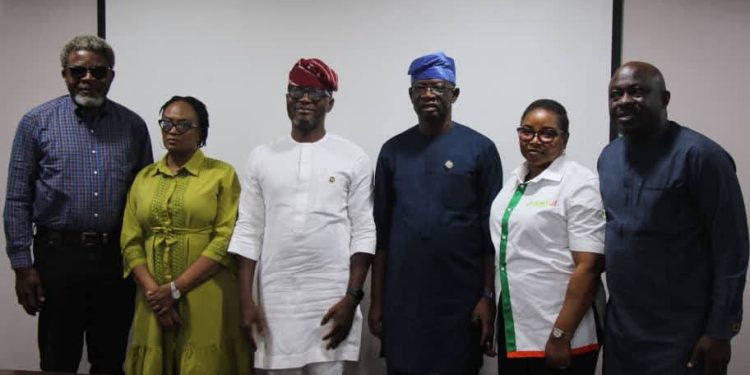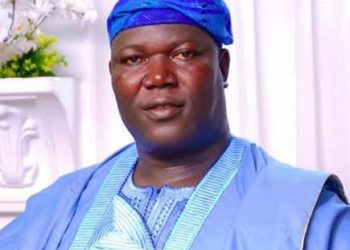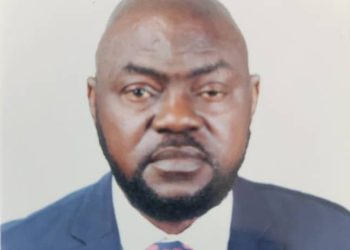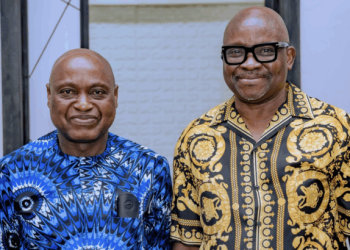In a major step towards improving public health and environmental safety, the Lagos State Infrastructure Asset Management Agency (LASIAMA), in collaboration with the Lagos Waste Management Authority (LAWMA), hosted a comprehensive training programme on Healthcare Waste Management for facility managers across the state’s public health institutions recently.
The event, held at the Folarin Coker Staff Clinic, brought together key stakeholders, including representatives from the Health Facility Monitoring and Accreditation Agency (HEFAMAA), the Health Service Commission, and private sector partners.
The training aimed at equipping participants, who are frontline facility managers engaged in maintaining Lagos health facilities, with critical knowledge and tools for effective handling of medical waste. The programme highlighted the significant role of healthcare waste management in infection prevention, protection of health workers, and safeguarding the environment.
Delivering the welcome address on behalf of LASIAMA’s General Manager, Ms. Adenike Adekanbi, the Head of the Facility Management Unit, Mr. Kunle Adesanya, emphasised that responsible waste management is integral to delivering quality healthcare services, “We are here today to address a critical issue that impacts both public health and the environment.
“This programme is designed to build capacity around waste segregation, collection, treatment, and safe disposal while ensuring that every healthcare facility operates in compliance with best practices,” he said.
In his keynote address, Dr. Muyiwa Gbadegesin, Managing Director/CEO of LAWMA, underscored the importance of healthcare waste management in a megacity like Lagos. “To continue to be the pacesetter that we are, we must keep innovating and investing in our people,” he noted.
Dr. Gbadegesin applauded health workers for their sacrifices during the COVID-19 pandemic and reiterated the state government’s commitment, under the THEMES Plus Agenda of Governor Babajide Sanwo-Olu, to regular training and re-training for sustainable waste management.
He also announced LAWMA’s plans to provide better support to waste managers and introduced participants to evolving practices and technologies that will enhance efficiency in the sector.
Representing the Permanent Secretary of the Health Service Commission, Mrs. (Dr.) Opeyemi Giwa commended LASIAMA and LAWMA for initiating the programme. He expressed optimism that the insights gained would improve waste handling in Lagos health facilities, reduce health hazards, and promote a cleaner and safer environment.
The session also featured a technical presentation by Mrs. Mojisola Adeleye, Deputy Director of Healthcare Waste Services at LAWMA, who broke down the stages of the waste management process, such as waste minimisation, segregation, storage, collection, transportation, treatment, and disposal.
She emphasised the need for every healthcare facility to maintain a Medical Waste Management Plan, use WHO-standard colour-coded bins, allocate proper budgets, and ensure regular staff training.
A highlight of the programme was the presentation by Mr. Suenu Moshood, LAWMA Regional Coordinator, who provided a detailed assessment report on waste management practices across 27 General Hospitals and 12 Maternal and Child Centres (MCCs) in Lagos.
Key findings revealed gaps in waste segregation, poor infrastructure in some facilities, and frequent co-mingling of medical and domestic waste, a practice he warned could endanger waste handlers and patients alike.
His recommendations included the provision of properly demarcated and motorable waste storage houses, installation of colour-coded bins, regular sanitisation of waste points, clear signage, and the use of Personal Protective Equipment (PPE) for all waste handlers.
In his remarks, Mr. Tayo Bright, Managing Director at Meditrack, commended the collaboration between LASIAMA and LAWMA and called for such capacity-building initiatives to be institutionalised and held at least annually. “This is a great platform bringing all stakeholders together under one roof. It signals the seriousness Lagos attaches to sustainable healthcare waste management,” he said.
The training programme aligns with global best practices and reinforces Lagos State’s commitment to promoting a safe, hygienic, and environmentally responsible healthcare system.
Participants left the session with renewed commitment and practical strategies to enhance waste management in their respective facilities.


